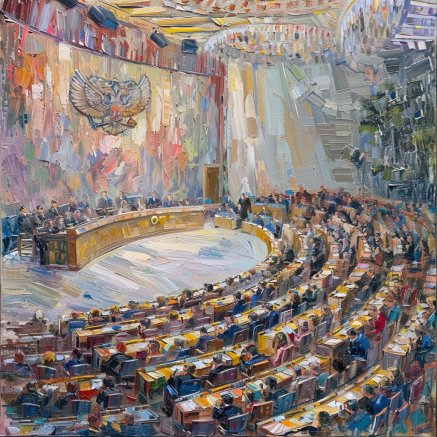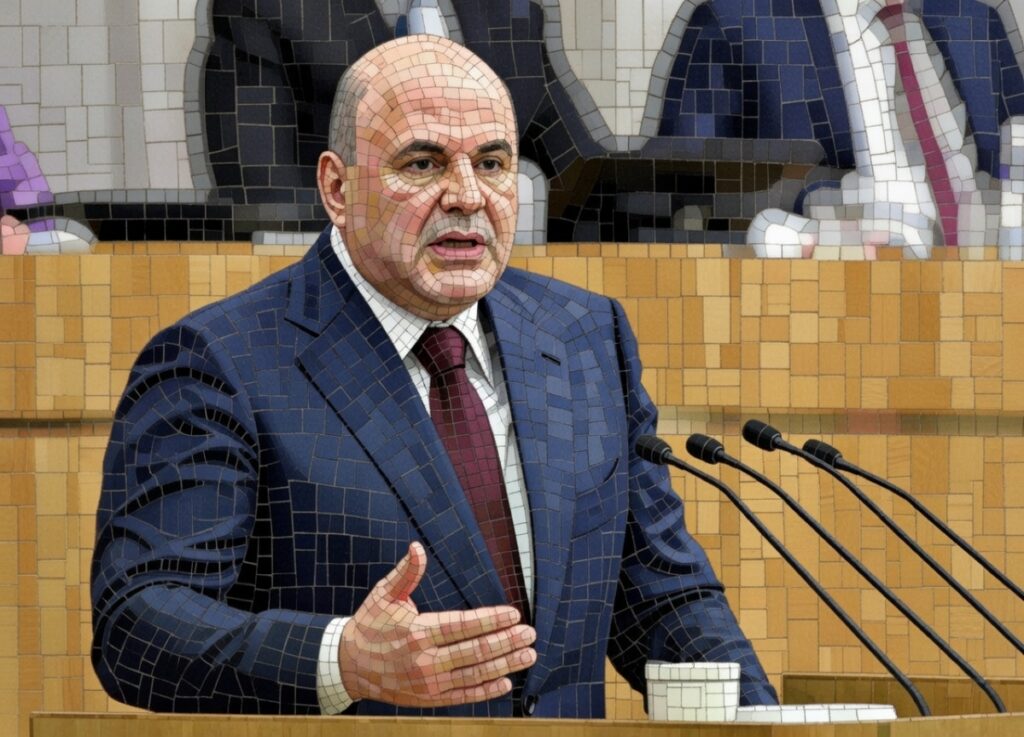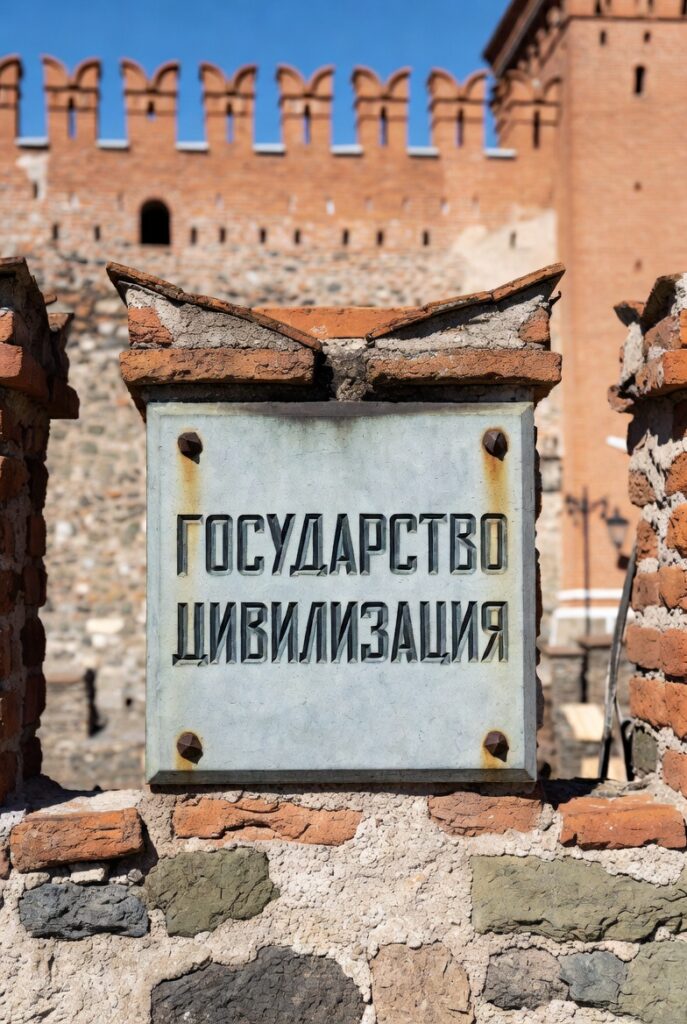Last week, the State Duma and the Federation Council hastily adopted amendments abolishing the residency requirement for delegates to the Federation Council. According to the law, the Upper House of the Russian parliament should be composed of representatives of the country’s regions: delegates of governors and territorial parliaments. However, territorial authorities cannot appoint just any person as a senator, even if his or her appointment is urgently requested by the Kremlin. The law stipulates a residency requirement: a member of the Federation Council must have lived in the region he or she represents for at least five consecutive years, or a total of 20 years. Only siloviki or diplomats could bypass this requirement. Now the list of positions that allow one to become a senator and disregard the residency requirement has grown considerably. Members of the government, the secretary of the Security Council and the deputy secretary of the Security Council, the head of the Constitutional Court and the Supreme Court and the judges of these courts, the Prosecutor General, the head of the Central Bank, the head of the Investigative Committee and his deputy, the chairmen of the Central Election Commission and the Accounts Chamber, the auditors of the Accounts Chamber, the Commissioner for Human Rights, all these and many other officials can now be delegated to the Federation Council.
All these amendments indicate that the status of the Federation Council is changing. Now it is mostly composed of prominent «regionalists» (regional politicians), such as ex-governors or their former deputies, former speakers of regional assemblies or mayors of large cities. At some point, the Kremlin ran out of seats in the executive branch for prominent «regionalists» who needed to be replaced by the right people, and such politicians and officials began to be sent to the Federation Council for honorable retirement. Now there is a personnel bottleneck at the federal level: many officials have been in their positions for many years. It is difficult to find a suitable new job for them: even unattractive positions have been filled long ago. The system is also not used to leaving its members «out in the cold»: guaranteed employment within the power vertical is a privilege of its members. The principle works well for the regime itself: bureaucrats with a high status within the system realize that they will not be abandoned, that they will be accommodated, and that they will retain the ability to communicate with their colleagues in the power vertical, albeit in a new status. The authorities solve this dilemma in various ways. For example, the Kremlin sent recently resigned members of the government, former Deputy Prime Minister Viktoria Abramchenko, former Energy Minister Nikolay Shulginov, and former Sports Minister Oleg Matitsyn, to run for the State Duma in by-elections in single-member districts. However, the elections themselves are cumbersome, and there are not always available districts for Lower House candidates to run in. The Federation Council may become a new haven for federal «has beens» who will replace regional retirees. In a sense, this is the power vertical actually admitting that it has run out of attractive posts for distribution and rotation within itself; now it proposes to consider «pensioner» seats in the Federation Council as such. To this end, it is facilitating access to the Upper House for all high-ranking officials.
Now it is possible, for example, to exile the head of the Investigative Committee Alexander Bastrykin to the Federation Council. Bastrykin unexpectedly lashed out against the work of the State Duma by calling the Russian parliament «the State Foola» (playing on the similarity of the Russian words for «Duma», parliament and «dura», a female fool). The head of the Constitutional Court Valery Zor’kin, the chairwoman of the Central Election Commission, Ella Pamfilova, and the deputy chairman of the Security Council, Dmitry Medvedev, could also be transferred there. It will now be much easier to make personnel decisions on persons with high status within the power vertical: if anything crops up, they can be sent to the Federation Council, which spares the regime the trouble of finding another compensation for its honorary retirees.
These measures will not have the best effect on the situation in the regions. The federal center, which has been sending representatives of the regional elites to the Federation Council, meant it as a tip of the hat, a meaningful symbolic gesture of respect. Thereby, Moscow was willing to formally share senatorial posts with local politicians and influential groups. Now this reserve of compensatory posts is being redirected in favor of the federal politicians. The regions are receiving another signal that the power vertical does not want to take them into account, even symbolically, and this will inevitably create resentment among local influential groups and individual politicians. For the time being, in the eyes of the local population, these politicians are acting as ambassadors of the federal center, carrying Moscow’s messages and agendas to the local level. Some sections of the local population and elites actually listen to them and take them seriously. Now the politicians whose feelings Moscow has clearly hurt, will definitely not fulfill these mediating functions any longer, while the retiring federal politicians will simply not be able to do it. Turning the Council of the Federation into a club of federal retirees will sever the few real ties between the center and the regions.
The Shoigu clan regroups
The case of Ruslan Tsalikov, one of the closest associates of the former Defense Minister and Secretary of the Security Council, proves that the Federation Council is becoming a haven for retiring federal politicians. The former first deputy head of the Defense Ministry was a candidate for the «United Russia» party in the parliamentary elections in Tyva. Tsalikov has nothing to do with the region and did not take part in the «United Russia» primaries in the republic. Nevertheless, he made it into the «top three» of the «United Russia» candidates list in the elections: according to the party’s charter, the leadership can delegate candidates to bypass the primaries. Tyva is Sergey Shoigu’s home region, and he used his resources to enable his partner’s participation in the elections. This will allow Tsalikov to become a senator from the region’s parliament (there is no residency requirement for former law enforcement officers).
Tsalikov’s move to the Federation Council shows that in his new position as Secretary of the Security Council Shoigu cannot give members of his clan jobs that give them access to financial and property resources. The positions of secretaries of the Security Council are not very attractive to those, who are used to managing billion-dollar budgets and sizeable establishments. In this sense, Sergey Shoigu’s resignation from the post of a rich and independent ministry is a big loss for members of his clan, which is focused on making money off and around the public funds. The ex-defense minister’s group retains control of the Moscow region, which is governed by Andrey Vorobyev, the son of Shoigu’s associate. This is a wealthy region, but any valuable posts in it have long been distributed among Vorobyov’s own acquaintances, who clearly are not eager to end up with senior «comrades» planted among them.
On the other hand, Shoigu has clearly retained his status in the power vertical: both because of his personal ties to Vladimir Putin and his current position as Secretary of the Security Council. Ruslan Tsalikov’s nomination as a candidate in the Tuva’s elections confirms that the Secretary of the Security Council retains influence over the «United Russia» party leadership and continues to virtually control his home region. The position of a senator that Shoigu has secured for Tsalikov will give Shoigu parliamentary immunity if the security services have an interest in him (and they clearly do in Sergei Shoigu’s clan). The group may be able to ride out the hard times in the Federation Council and perhaps even see some positive changes in fortune. However, any positive developments seem unlikely today. For the time being, Shoigu and his associates occupy high-status positions in the power vertical that do not offer any influence on budgetary flows. The longer they hold these new jobs, the closer they will come to the age of political retirement, when they will have to leave the stage.
The same can be said about the career moves of people close to former Security Council Secretary Nikolai Patrushev. They are now heavily concentrated in the Kremlin’s newly created Presidential Directorate for National Maritime Policy, a structure with a very narrow sphere of responsibility and rather vague powers. Patrushev’s former aide, Nail Mukhitov, has become deputy head of the department, and another of Patrushev’s aides, Yevgeny Anoshin, will also work there. They are clearly attached to their boss in the power vertical and will continue to move with him. Without Patrushev, the fate of the members of his team will not be easy; the status of his aides — unlike that of Shoigu’s deputies — is not so high that they can be delegated to the Federation Council, and there may not be any vacancies for them left in the executive branch to fill.










